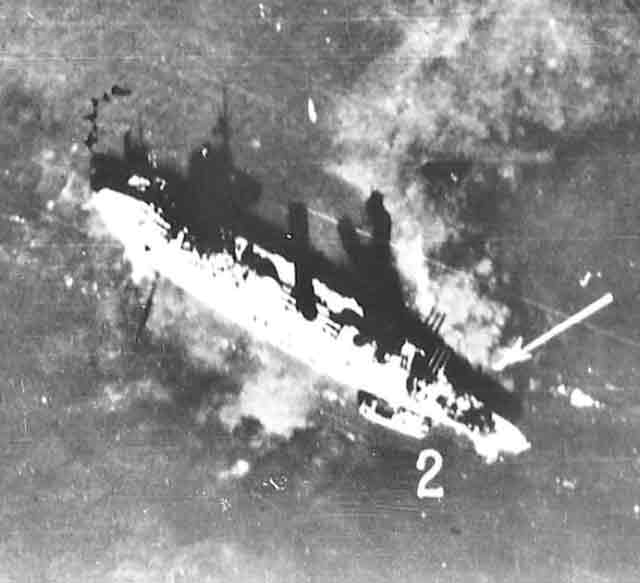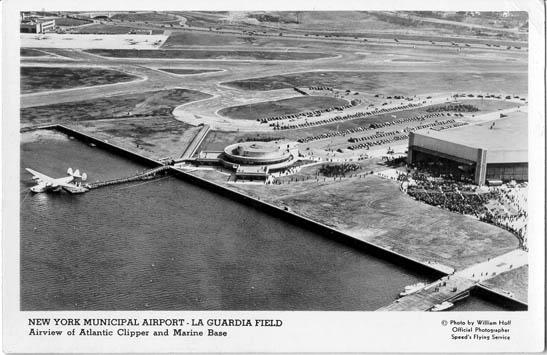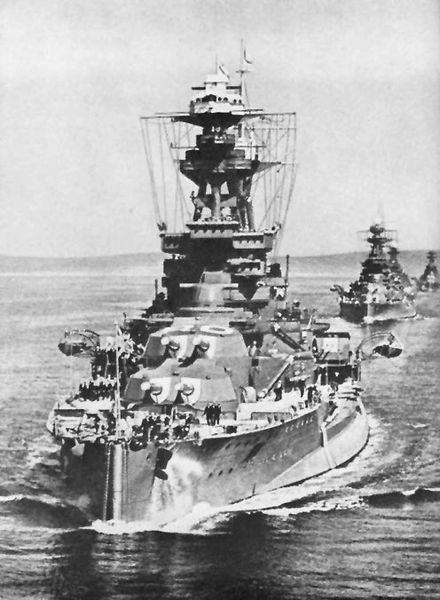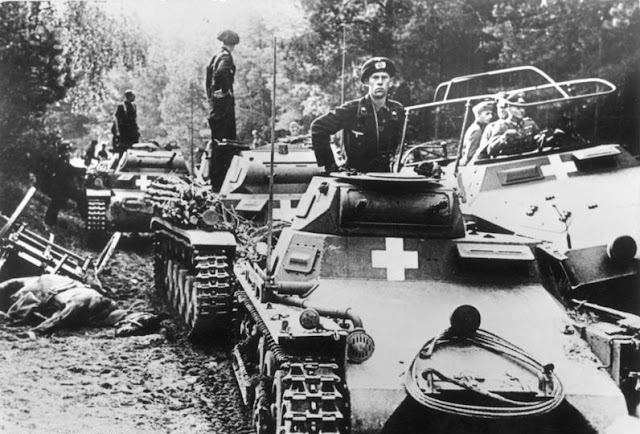Monday 29 September 1941
 |
| Babi Yar ravine in northwest Kyiv, Ukraine. It is the site of a massacre of over 33,000 people on 29 September 1941. |
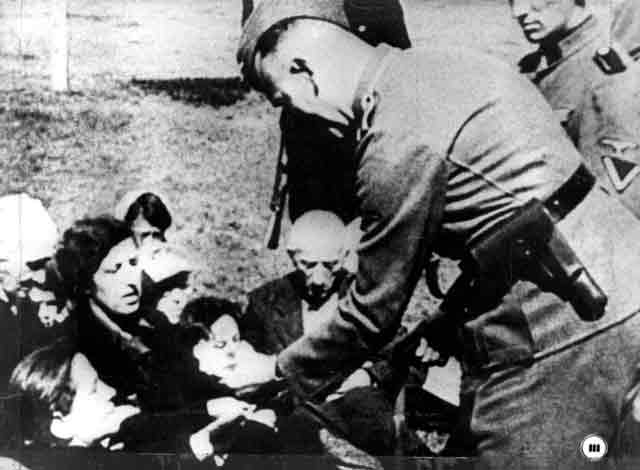 |
| German SS troops interacting with Kiev civilians at Babi Yar prior to their execution, circa 29 September 1941. |
. . . if nothing came of the proposal for a meeting between the chiefs of our two Governments it might be difficult for Prince Konoye to retain his position and that Prince Konoye then would be likely to be succeeded by a less moderate leader.While the message is phrased as diplomatically as possible, the message is clear: deal, or there will be trouble. Everyone knows - including Washington, which is kept well-informed by its ambassador in Tokyo Joseph Grew - that the Japanese military is eager for war and dominates the Cabinet.
 |
| The Babi Yar massacre in progress circa 29 September 1941 (Ernst Klee Archive via United States Holocaust Memorial Museum). |
 |
| Joe Louis defeats Lou Nova at the Polo Grounds on 29 September 1941 to retain his heavyweight championship. This is the 19th successful defense of his title by Joe Louis (Joe Costa). |
 |
| Babi Yar Ravine. |
All Jews living in the city of Kiev and its vicinity are to report by 8 o'clock on the morning of Monday, September 29th, 1941, at the corner of Melnikovsky and Dokhturov Streets (near the cemetery). They are to take with them documents, money, valuables, as well as warm clothes, underwear, etc.
Any Jew not carrying out this instruction and who is found elsewhere will be shot. Any civilian entering flats evacuated by Jews and stealing property will be shot.The common conclusion of those reading this notice was that the Germans would follow their typical practice and deport the Jews. This would not be the case.
 |
| The crew and their family members of the USS Philadelphia (CL-41) gather at the Hotel Astor in New York City to celebrate a change in command. Captain Vance D. Chapline was being relieved by Captain C.J.Moore (CL-41 Tribute Home). |
September 1941
September 1, 1941: Two Years In
September 2, 1941: Germans Pushed Back at Yelnya
September 3, 1941: FDR Refuses to Meet with Japanese
September 4, 1941: Hitler Furious at Guderian
September 5, 1941: Germans Evacuate Yelnya
September 6, 1941: Japan Prepares for War
September 7, 1941: Hitler Orders Drive on Moscow
September 8, 1941: Leningrad Cut Off
September 9, 1941: Germans Attack Leningrad
September 10, 1941: Guderian Busts Loose
September 11, 1941: Convoy SC-42 Destruction
September 12, 1941: Starve Leningrad!
September 13, 1941: Zhukov at Leningrad
September 14, 1941: Germany's Growing Casualties
September 15, 1941: Sorge Warns Stalin Again
September 16, 1941: Soviets Encircled at Kiev
September 17, 1941: Iran Conquest Completed
September 18, 1941: Focke-Wulf Fw 190 in Action
September 19, 1941: Germans Take Kiev
September 20, 1941: Death at Kiev
September 21, 1941: Raging Soviet Paranoia
September 22, 1941: Defense of Nickel Mines
September 23, 1941: Air Attacks on Leningrad
September 24, 1941: Japanese Spying Intensifies
September 25, 1941: Manstein at the Crimea
September 26, 1941: Kiev Pocket Eliminated
September 27, 1941: Massacre at Eišiškės
September 28, 1941: Ted Williams Hits .400
September 29, 1941: Babi Yar Massacre
September 30, 1941: Operation Typhoon Begins
2020




